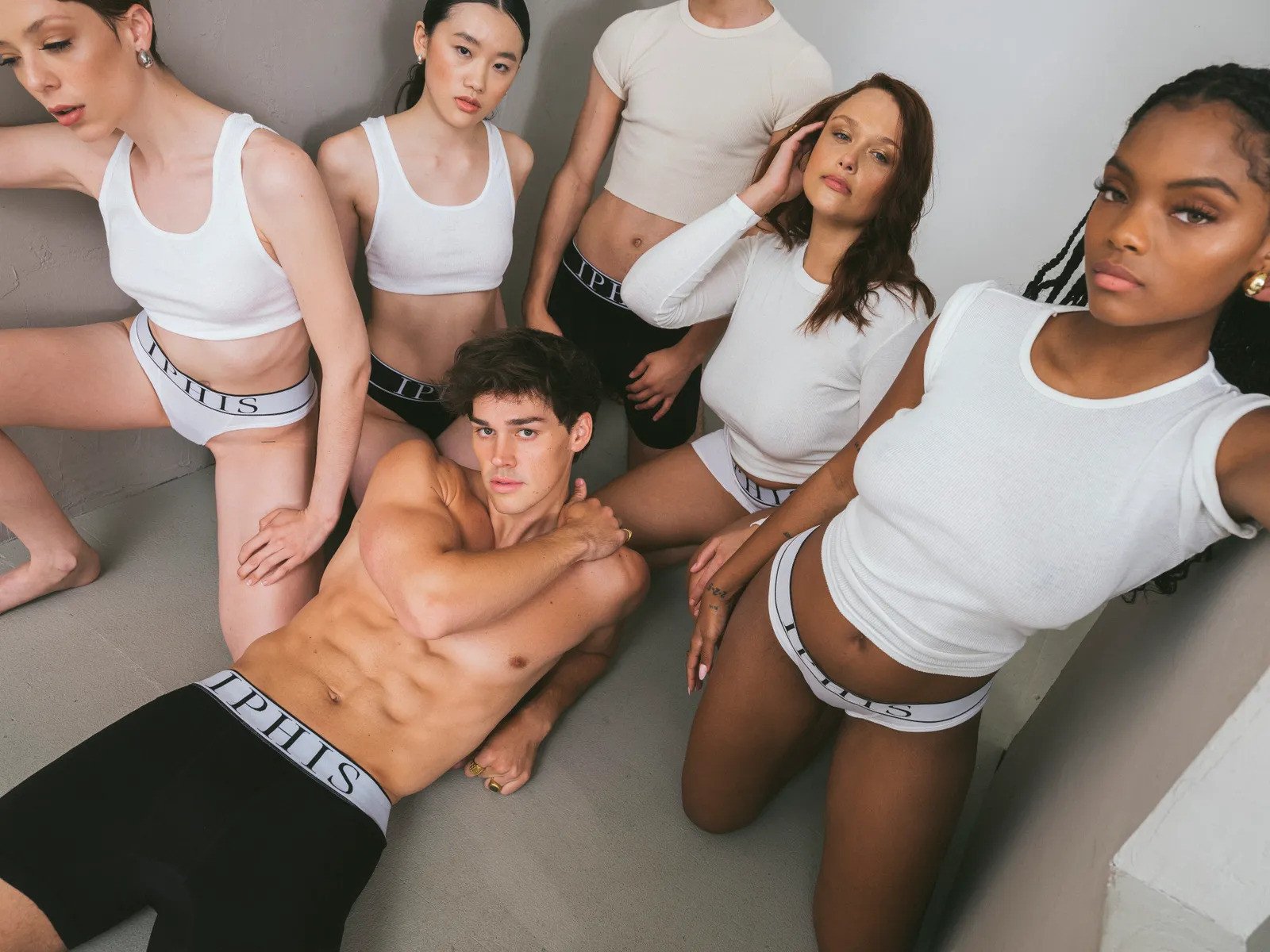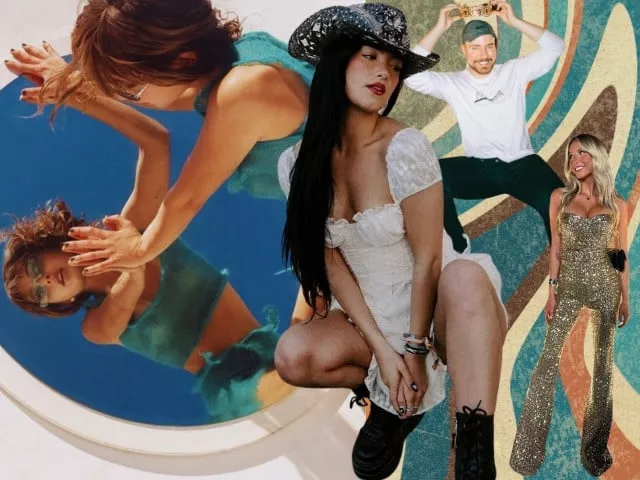Quick, name a famous influencer who has truly broken out of the internet bubble to become a mainstream celebrity. Charli D’Amelio? Addison Rae? Maybe a YouTuber like Emma Chamberlain or Mr. Beast?
No matter who you think of, they likely share one common trait: their fame didn't erupt in the past year or even the year before. We are experiencing a drought of new famous influencers, and it looks like it's here to stay.
People aren't breaking through online like they used to, becoming household names and garnering real, mainstream fame.
Previously, an influencer or content creator could spend a brief period building their content and fan base. Family vloggers, pranksters like the Paul brothers, or makeup artists and fashionistas would eventually reach a tipping point. Suddenly, these people were being featured in mainstream media, landing roles in movies and TV shows, and attending high-profile events.
Remember 2021, when influencers like Chamberlain and Rae attended the Met Gala, causing a stir? This year, Chamberlain attended the Met again (she's now a fixture, working the red carpet for Vogue), but many of her peers have faded from the spotlight. Even if Anna Wintour wanted to invite a fresh crop of internet talent, who would she choose? Can you name anyone from the past year who has made a significant leap to mainstream fame?
The last influencer to truly make it was Alix Earle, who became a household name seemingly overnight in early 2023. Sophie, who runs a social media consulting business called Pretty Little Marketer, also identified Earle as the most recent influencer to blow up. "I'd say she’s exceeded well past the title of influencer to global celebrity status," Sophie says.
1720525863-0/image-ezgif-com-webp-to-jpg-converter-(1)1720525863-0.jpg)
Alix Earle is the latest breakout star on social media.
This doesn’t mean people aren't succeeding on social media. The issue is that too many people are succeeding. It's no longer unique to have hundreds of thousands or even millions of followers, an agent, or lucrative brand deals. With a massive pool of creators who are hard to differentiate, standing out has become increasingly difficult. "There are many influencers who still make it 'big' in terms of opportunity and following, but we’ve seen fewer boom into mainstream media as we have in the past," Sophie says.
Some influencers achieve viral success, leading to a career in content creation, but they struggle to maintain public consciousness. Sophie gives the example of Tube Girl a.k.a. Sabrina Bahsoon, who went viral on TikTok for her videos on London's tube. Despite nearly a million followers and many brand deals, Bahsoon isn’t a household name.
Aspiring influencers find it harder than it seems to make it. A common refrain on social media is that becoming an influencer in this new landscape is much trickier than most expect. Resources like TikTok and Instagram videos, podcasts, and paid courses aim to help people become influencers, but it's unclear if they're effective. Tess Barclay, with approximately 150,000 followers on TikTok, said, “Content creator advice on TikTok is so stressful and overwhelming because it all contradicts each other.” She advises aspiring influencers to focus on what matters to them, whether that's going viral or building a smaller, engaged following.
Why have mega-famous influencers stopped producing successors? There are a few theories. One is the sheer number of influencers, making it difficult to have a Charli or Addison moment. Another is that brands now focus more on engagement rates rather than follower counts, valuing quality over quantity. Additionally, platforms like TikTok silo users based on interests, so someone famous in a niche community may struggle to break out.
Sophie thinks the maturation of internet audiences also plays a role. "Not only is it harder to stand out, but it’s becoming increasingly more difficult to win over sceptical audiences who crave transparency and authenticity," she says. "Without an engaged audience, there’s no route to stardom."
Sophie doesn’t think internet celebrities are dead but believes they must work harder for it. She advises aspiring influencers to play the long game. "Influencing takes time and dedication," she says. "Don’t get discouraged if success doesn’t happen overnight. Focus on building deep connections with your audience sustainably and slowly, over fleeting viral moments."
Remember the glory days of Musical.ly, Emma Chamberlain's daily YouTube vlogs, and the rise of King Kylie in 2018 and 2019? Influencer culture was more prevalent than ever, with children's aisles in grocery stores lined with tripods and ring lights instead of toys. Thanks to TikTok’s hype in 2020, many users became celebrities overnight. Charli D'Amelio joined TikTok in 2019 and gained massive exposure quickly. On September 5, 2020, she had over 6 billion likes and 82 million followers.
TikTok's discovery-based algorithm helped users gain exposure fast. Today, the platform is so populated that everyone is racing for fame. With over 34 million TikToks posted daily, reaching as many people as before is challenging. Influencers fear irrelevancy, constantly evolving with new ventures or content.
Emma Chamberlain extended her career through Chamberlain Coffee and her podcast, Anything Goes with Emma Chamberlain. In one episode, she discusses the decline of influencers, stating, “Either 80% of people are famous in some way or another, and fame just becomes universal. Or, the meaning of celebrity will change and it will become extremely exclusive. If you have 1 million followers, you are not considered a celebrity.” This reflects the fears of influencers facing oversaturation on social media platforms.
Major celebrities have started businesses to extend their careers into financial stability. Names like Noah Beck and the Kardashian/Jenners have expanded into business ventures. Noah Beck, who gained fame through TikTok, has ventured into fashion with his unisex underwear line, IPHIS. This shift from image to merchandise aims to boost his career longevity.

Image courtesy of IPHIS
The future of influencer culture looks uncertain. The glorification of influencers as a career is waning, leading to oversaturation and a demand for relatable, peer-based content. This shift diminishes the power of established influencers, affecting their financial stability and career progression.
Emma Chamberlain's theory about social media oversaturation suggests we might live in a world where having millions of followers is normal, or only those with over 100 million followers will be considered celebrities. Icons of our generation will continue using their platforms to promote business ventures, acknowledging the instability of influencing as a career.
Influencer culture is not the same as it once was. The path to fame is more challenging, and influencers are not achieving the same level of success as before.
As social media becomes more crowded, the need for genuine, relatable content grows, diminishing the power of established influencers.









COMMENTS
Comments are moderated and generally will be posted if they are on-topic and not abusive.
For more information, please see our Comments FAQ